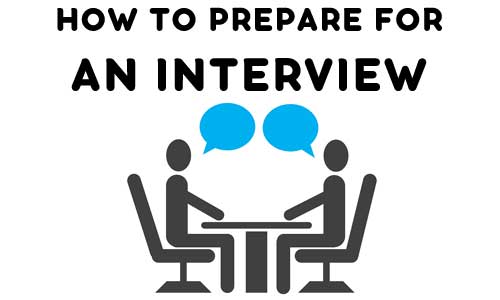Back How to prepare for an interview?

It is necessary to prepare for the interview, and this is a fact. Any employer will be satisfied if you come prepared for an interview.
1. Get the maximum information about the company: go to the site and carefully read the section "About Us", read a few articles in Google about the activity that the company is conducting, see what the current and past employees of the company write about the work. Any employer will be pleased to understand that you are aware of where and why you came.
2. Find out beforehand with the recruiter what you need to take with you: a printed resume or portfolio, documents, a laptop. It will also be true to clarify the dress code, the duration of the meeting and the number of participants. This will help you protect yourself from unforeseen situations.
3. Examine in detail the information on how you are: what hopes are placed on this specialist, what you will need to do, who previously held this position.
4. Prepare answers to the questions asked:
- what benefits you can bring to the company;
- which were your professional achievements at the previous place of work;
- why you want to work in this company;
- a story about yourself (elevator pitch);
- your strengths and weaknesses (also wrote the answer to this question earlier).
5. Prepare questions for the employer. Think about what really matters to you at your next job: schedule, a team, career and education, or material / non-material motivation.
An interview is a two-way procedure in which each party is interested. It will be nice for any recruiter or relative to work if you really understand where and why you came!
How to answer the question - “What are your drawbacks? What is your weakness?"
Have you been asked such questions during an interview?
In this case, the employer wants to evaluate your ability to self-analyze and catch you if you do not answer the vacancy. So be careful when calling negative qualities that are important in a vacancy framework.
Very bad answer:
- “I have no flaws”;
- “I have the right not to answer this question”;
- “I am a workaholic and perfectionist”;
- “I love sweets very much” or “I can’t stop smoking”;
- “I admire too much work.”
All these options do not provide an answer to the question, or are not related to work. It is better not to use them.
How to more correctly answer the question about your shortcomings?
Let's say: talk about the shortcomings that are partly related to your work.
For example: I find it difficult to speak in front of a large audience.
Good: to tell about the partial lack of knowledge required for this position + to say that you are still developing in this direction.
Example # 1: I lack experience in / indicate exactly how it is described in your vacancy /, but at the moment I am taking courses / course name / where in a few months I will improve my knowledge.
Example number 2: I feel bad in my mind, but I know Excel well and can perform any operations there, work with formulas.
How to present yourself? Elevator pitch
Most candidates get confused when they are asked to tell about themselves at the interview, so I recommend preparing an answer in advance. Elevator pitch does not need to learn by heart, no, let it be alive. So you will always have a frame from which you can build on.
What can you tell:
Name and age;
- position that you currently occupy;
- your professional experience, key skills;
- who do you want to work;
- what benefits can be brought to the company.
The story should take 1-3 minutes, no more.
Prepare the elevator pitch once and you will always know how to respond to the employer.
Good luck on interview!
Read other our articles!
Are you ready for working with the UN? 5 thing you should accept before applying
7 recommendations for young specialists or how to win over the first job.
Smart Guide how to get a Job into the UN and NGOs
How to get a job in United Nations, UNDP or NGOs? Personal experience. Part 1.
PhD - yes or not. Do you really need PhD to be hired in UN?
Do not forget to subscribe on our telegram channel!